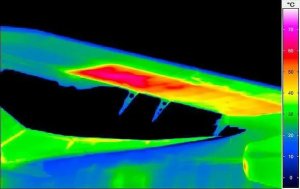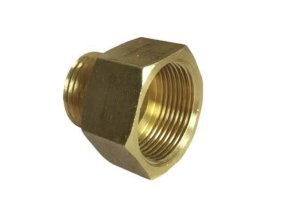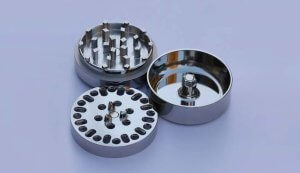One of the most important steps in designing a part is to decide what material it should be made of. If you decide to use plastic, you know there are many plastic machining options today. Each one has its own set of properties. CNC-machined plastic components are easy to use and make great prototypes. But which one should you choose? Do you understand each of them?
This guide will help you match your project requirements with the right material for CNC plastic part manufacturing. With good knowledge of the material will also help you communicate better with the machining manufacturer.
I will give you an overview of material properties, including the pro and cons of each. The following plastics will be covered in this post:
- ABS
- Nylon
- Acrylic
- HDPE
- Polycarbonate
ABS Plastic CNC Machining
ABS is a versatile general-purpose plastic that is widely used. ABS is a versatile plastic that can withstand high impacts, is tough, and has low electrical resistance. It can also be painted, glued, or welded together. ABS CNC machining is cutting or engraving with a CNC milling machine.
Pro
ABS is a great choice for general prototyping, pre molding prototypes, and parts that will be subject to impact and require toughness or when low costs are desired.
Con
ABS is not chemical-resistant or abrasion-resistant and can melt in acetone. ABS is not a strong plastic. Due to stricter environmental regulations on the West Coast, large amounts of ABS can only be made in the Midwest or East Coast. Large ABS parts can take up to a week to ship if stock is more than 2 inches thick.
Common Applications
ABS is commonly used for preinjection molding prototypes to make electronic enclosures, household appliances, and iconic Lego bricks.
Nylon CNC Machining
We have Nylon 6/6 and glass-filled nylon. Nylon 6/6 plastic is strong and can be used for many purposes. It also has the rigidity required to maintain its shape under load conditions. It is also very popular to use glass-filled nylon for CNC machining.
Pro
Nylon is strong and rigid and can maintain over a wide temperature range. It also has good electrical insulation and chemical and wears resistance. Nylon is an excellent choice for strong and durable parts but at a lower price.
The glass-filled nylon is strong, rigid, tough, and dimensionally stable.
Con
Nylon absorbs moisture and can swell, which causes it to lose some of its dimensional accuracies. Due to the internal stresses in the material, it can also warp when there is too much asymmetric material removal during machine machining.
Common Applications
Nylon is often used in medical devices, circuit board mounting hardware, and electrical insulation. It can also be found in automobile engine compartment components and aerospace components. It is often used in these applications as an economically viable alternative to metals.
Acrylic
Acrylic is also known as Plexiglass and Lucie. It has a chemical composition called PMMA (Poly Methyl Methacrylate). Acrylic cement can be used to bond it. It has good scratch resistance and impact strength.
Pro
It can be used in any application that requires optical transparency or translucence. Its scratch resistance makes it ideal for areas that are prone to abrasion.
Con
Acrylic is a hard plastic that can crack and shatter rather than stretch like a pliable material. Acrylic components are fragile because they have thinner walls.
All machined surfaces made from acrylic will lose transparency and turn translucent. It is a good idea for acrylic parts to be kept at the stock thickness in order to maintain transparency. It is possible to polish the surface if transparency is required on a machined surface.
Common Applications
Acrylic is machined and transparent. It is often used as a lightweight replacement for glass or to make light pipes. Other common uses include light tubes, light tubes, light tubes, and panels, as well as components for optical engineering.
HDPE CNC Machining
HDPE is high-density polyethylene. HDPE is an opaque crystalline material. It can be finished with a waxy or black dye, but it is also available commercially.
Pro
HDPE, despite its name, is one of the lightest plastic. It also has great chemical resistance and electrical insulation. It has a low coefficient for friction and is resistant to low-temperature impact. It is an affordable and durable option for CNC-machined plastic parts.
Con
HDPE’s biggest disadvantage is its weak strength in tension and flexing. It is also susceptible to stress cracking.
Common Applications
HDPE is used frequently in fluid applications such as fuel tanks, plastic bottles, fluid flow pipes, and other fluids. HDPE is a great choice for plugging and sealing because of its chemical resistance and slipperiness. It also works well in electrically sensitive or weight-sensitive applications.
Polycarbonate CNC Machining
The most durable plastic is polycarbonate (or PC). PC is a transparent thermoplastic. It is also one of the most widely CNC machined plastics and the most frequently recycled plastics worldwide. Although it has a transparent, milky-blue appearance, it is also available commercially in a dark hue. Both the black- and milky blue tints are naturally glossy.
Pro
Polycarbonate is very tough and rigid and can withstand high temperatures. It remains functional for a long time. It can also be dyed black to achieve opaqueness. Polycarbonate is the best choice for applications where a tough, strong, or transparent plastic is required or desired. Polycarbonate is one of the most widely used and frequently recycled plastics.
Polycarbonate is used more often than acrylic due to its 250X greater impact resistance and higher resilience.
Con
Polycarbonate is susceptible to scratches and has poor wear resistance. As an optional step after processing, anti-scratch coatings or vapor polishing may be applied to increase wear resistance and optical clarity. It is not available in pieces larger than 2 inches thick. This limits the number of parts made from polycarbonate.
Common Applications
Polycarbonate’s transparency and durability make it ideal for optical disks and safety glasses.
Other Articles You Might Enjoy
- Unraveling the World of CNC Machined Plastic Parts(CNC machined plastic parts Mabel)
Modern innovations have taken traditional manufacturing methods to new heights. One such innovation that stands out is Computer Numerical Control (CNC) machining, a process used extensively in various industries from…
- CNC Machined Plastic Parts: An In-depth Overview(CNC machined plastic parts Norman)
Computer Numeric Control (CNC) machining is an advanced manufacturing process where pre-programmed software dictates the movement of factory machinery and tools. These applications can carry out complicated manufacturing tasks with…
- Enhancing CNC Machining with Smart Alloys: Shape Memory Metals vs. Traditional Alloys
Introduction to CNC Machining Computer Numerical Control (CNC) machining stands as a cornerstone in modern manufacturing, enabling the precise and automated shaping of materials. This technology relies heavily on the…










 Afrikaans
Afrikaans Albanian
Albanian Amharic
Amharic Arabic
Arabic Armenian
Armenian Azerbaijani
Azerbaijani Basque
Basque Belarusian
Belarusian Bengali
Bengali Bosnian
Bosnian Bulgarian
Bulgarian Catalan
Catalan Cebuano
Cebuano Chichewa
Chichewa Chinese (Simplified)
Chinese (Simplified) Chinese (Traditional)
Chinese (Traditional) Corsican
Corsican Croatian
Croatian Czech
Czech Danish
Danish Dutch
Dutch English
English Esperanto
Esperanto Estonian
Estonian Filipino
Filipino Finnish
Finnish French
French Frisian
Frisian Galician
Galician Georgian
Georgian German
German Greek
Greek Gujarati
Gujarati Haitian Creole
Haitian Creole Hausa
Hausa Hawaiian
Hawaiian Hebrew
Hebrew Hindi
Hindi Hmong
Hmong Hungarian
Hungarian Icelandic
Icelandic Igbo
Igbo Indonesian
Indonesian Irish
Irish Italian
Italian Japanese
Japanese Javanese
Javanese Kannada
Kannada Kazakh
Kazakh Khmer
Khmer Korean
Korean Kurdish (Kurmanji)
Kurdish (Kurmanji) Kyrgyz
Kyrgyz Lao
Lao Latin
Latin Latvian
Latvian Lithuanian
Lithuanian Luxembourgish
Luxembourgish Macedonian
Macedonian Malagasy
Malagasy Malay
Malay Malayalam
Malayalam Maltese
Maltese Maori
Maori Marathi
Marathi Mongolian
Mongolian Myanmar (Burmese)
Myanmar (Burmese) Nepali
Nepali Norwegian
Norwegian Pashto
Pashto Persian
Persian Polish
Polish Portuguese
Portuguese Punjabi
Punjabi Romanian
Romanian Russian
Russian Samoan
Samoan Scottish Gaelic
Scottish Gaelic Serbian
Serbian Sesotho
Sesotho Shona
Shona Sindhi
Sindhi Sinhala
Sinhala Slovak
Slovak Slovenian
Slovenian Somali
Somali Spanish
Spanish Sundanese
Sundanese Swahili
Swahili Swedish
Swedish Tajik
Tajik Tamil
Tamil Telugu
Telugu Thai
Thai Turkish
Turkish Ukrainian
Ukrainian Urdu
Urdu Uzbek
Uzbek Vietnamese
Vietnamese Welsh
Welsh Xhosa
Xhosa Yiddish
Yiddish Yoruba
Yoruba Zulu
Zulu